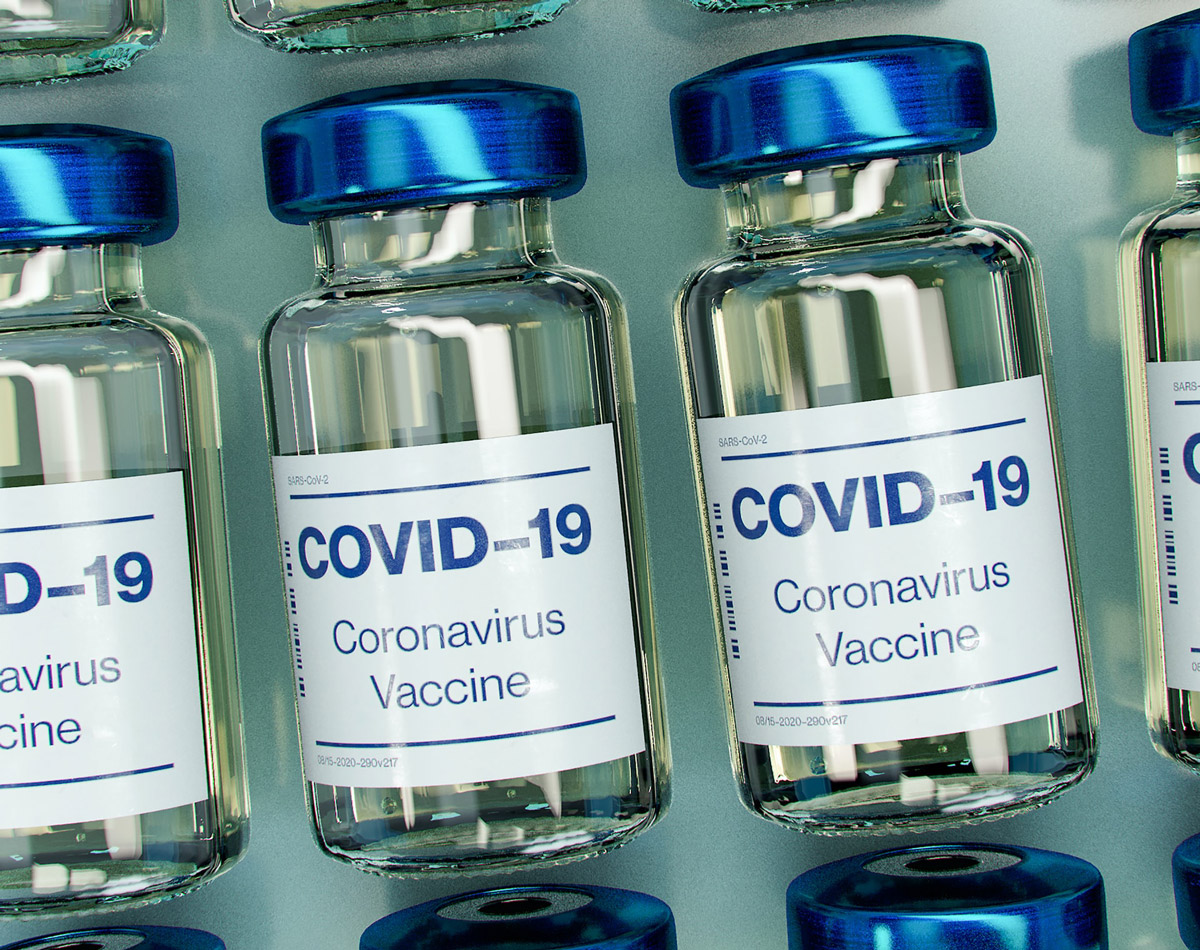What is the COVID-19 vaccine?
- Vaccines are products that produce immunity to a specific disease like COVID-19. When you are immune to COVID-19 that means you can be exposed to it without becoming sick or if you do become infected, it prevents more severe illness.
Why is it important to get a COVID vaccination?
- Vaccines save lives. Vaccines don’t just protect the people getting vaccinated; they protect everyone around them too. The more people in a community who are vaccinated and therefore protected from COVID-19, the harder it is for it to spread.
- Widespread immunization is the best option to protect people in Canada from COVID-19.
- As more people get vaccinated, we can return to activities that haven’t been possible during the pandemic.
- The FNHA’s Medical Officers strongly recommend that Indigenous people opt to get the vaccine when they are offered one.
Who will get vaccinated first?
- Initially, only small quantities of vaccine will be available, requiring that vaccinations take place in a sequenced rollout.
- Health care workers in long-term care homes in Vancouver and the Fraser Valley will be the first to get the Pfizer-BioNTech vaccine, which requires ultra-cold storage that is only available in a few sites in BC.
- The Moderna vaccine is the next that is expected to be approved by Health Canada. It doesn’t have such strict storage requirements so it will be available for administration in long-term care facilities and and community settings.
- Other vaccines will also become available in the New Year. Until they are more widely available, the following groups will receive priority:
- Residents and staff of long-term care and assisted living facilities
- Health care workers providing care to COVID-19 patients in settings like intensive care units, COVID-19 medical wards, and emergency departments.
- First Nations people in rural or remote areas (expected to have access to vaccines in February and March 2021).
- Older adults. The age requirement for Indigenous adults will be lower than the rest of the population due to a higher rate of health risks and other factors that have affected equitable access to health care. Details are still being finalized.
- Check this page for updates as more vaccines are approved and more supplies become available: http://www.bccdc.ca/health-info/diseases-conditions/covid-19/covid-19-vaccine/eligibility
How does the vaccine work?
- The first COVID-19 vaccines are called messenger RNA (mRNA) vaccines. RNA stands for ribonucleic acid, which is a molecule that provides cells with instructions for making proteins. These vaccines essentially teach our cells how to make the coronavirus’s spike protein and trigger an immune response if we become infected with the virus.
- The Pfizer and Moderna mRNA vaccines require two doses to be fully effective. The second dose is administered about three weeks after the first.
- Clinical trials showed a 70 per cent effectiveness rate beginning seven to 10 days after the first dose and a 95 per cent effectiveness rate beginning seven to 10 days after the second dose.
- As with any vaccine, the COVID-19 vaccines may not fully protect all those who receive them.
- Questions remain about how long immunity lasts and whether a vaccinated person can still transmit the disease. Research into these and other questions continues.
Is the COVID-19 vaccination safe?
- Vaccines are safe. To ensure vaccines are safe, there are many processes and standards in place.
- In Canada, new vaccines must go through three phases of clinical trials (studies) before being approved for use in the general public. There are hundreds or even thousands of participants who volunteer to participant in the third phase of the clinical trials. These trials provide crucial information on vaccine safety as well as effectiveness. After clinical trials, Health Canada must approve any vaccine before it is used in Canada.
- Before a vaccine is offered in Canada, Health Canada will ensure:
- It’s safe
- It works
- There are consistent, high-quality manufacturing processes
- That the benefits of getting the vaccine outweigh the risks of not getting it
- There is strong evidence that the vaccine is safe and works for people 16 years and over – including seniors – and that it is highly effective across age, sex, race and ethnicity.
- COVID-19 vaccines have not yet been tested in people who are under 16 years old, pregnant, or have immune-compromising conditions (e.g., people undergoing chemotherapy). The vaccine isn’t recommended for these people at this time.
- As more data becomes available, Health Canada will assess new clinical data, such as evidence to support use in broader populations (e.g., children).
- The vaccine is recommended for people with underlying health conditions, such as diabetes and/or heart disease. This is because people with underlying health conditions are vulnerable to developing a severe illness if they do get coronavirus, and vaccines are the most effective way to prevent that from happening.
- If you had, or may have had, COVID-19 you should still get the vaccine when it’s available to you. This is because you may not be immune to the virus that causes COVID-19 and you could get infected again and become sick.
What are the side effects?
- Only minor side effects were observed in clinical trials, similar to ones you might get from any shots.
- These include pain at injection site, tiredness, headache, muscle pain, chills, joint pain, and fever. These reactions are mild and generally last one to two days.
- Should you develop any serious symptoms or symptoms that could be an allergic reaction, seek medical attention right away. Symptoms of an allergic reaction include: hives (bumps on the skin that are often very itchy); swelling of the face, tongue or throat; difficulty breathing. This is why you are asked to wait 15 minutes before you leave the clinic after getting a vaccination.
- If you have experienced a serious allergic reaction to another vaccine, drug or food, you should talk to your health professional before you receive the vaccine.
- The vaccine ingredients are published here: https://covid-vaccine.canada.ca/info/pfizer-biontech-covid-19-vaccine-en.html
- Vaccines continue to be monitored for safety after they are approved. They are monitored locally, provincial, nationally and globally. If you have an adverse reaction following immunization, it is important you let your immunization provider know.
I still feel nervous about getting the vaccine…
- Vaccination is a personal choice that most Canadians agree is part of good health and important for prevention of serious disease.
- The COVID vaccine is an option the FNHA’s Medical Officers recommend to protect you, your family and your community.
- Feeling worried or hesitant is normal when something is new and it is understandable that some people – especially Indigenous people – may lack trust in the medical system. However, vaccine trials go through rigorous, well-established ethical processes. We can feel assured that vaccines are safe, effective and that they will save lives.
- Reduced access to stable housing, income, clean water and/or health and social services place many Indigenous peoples at higher risk of COVID-19. The COVID-19 vaccine is one way that Indigenous peoples can protect themselves from this virus and build “Community Immunity”.
How did we get a COVID-19 vaccine so fast?
- Scientists have been able to develop COVID vaccines quickly thanks to high levels of government funding, by sharing information and working together across countries, and building on technology they already use in existing, successful vaccines.
- In addition, groups like Health Canada shortened the bureaucratic processes, for example reviewing data while clinical processes were going on. However, the safety approval processes have not changed. The requirements for safety data in clinical trials are as stringent as ever.
How is the COVID-19 vaccine being distributed?
- The first vaccine, by Pfizer-BioNTech, is being transported into the province to pre-determined “drop sites” in highly populated areas that have the ultra-cold (less than minus 70 degrees) storage facilities the vaccine needs.
- The vaccine is fragile and can’t be moved once it reaches a drop site.
- This may change over time but right now that means people need to go to the vaccine.
- The Moderna vaccine that is expected to be available next has less rigorous storage requirements – about minus 20 – the same as a regular freezer. Other vaccines that are in development can be stored in a fridge.
- These upcoming vaccines will be much easier to transport and store in various locations around the province.
- They will make it possible for vaccines to be brought to people all over the province. There should be no need to travel to a city to get the vaccine.
- The FNHA is working to make sure you can access the vaccine when it is available for you.
Will we be able to stop wearing masks and other measures to protect ourselves from COVID? Will life go back to normal?
- Not yet.
- We need to continue to practice all the recommended public health measures even if we’ve been vaccinated.
- That’s because we don’t know how long the vaccine will last or whether it prevents us from transmitting the COVID-19 to others, even if we don’t have symptoms.
- To stop the spread of the virus, enough people need to be immune either through natural infection or immunization. The World Health Organization estimates that 70 per cent of the population would need to be vaccinated to ensure widespread protection.
- We hope to be able to offer every Canadian a vaccine by the summer.
- An effective vaccine against COVID-19 is another tool in our toolkit and another layer of prevention.
- We need to keep doing the basics because these stop COVID and other diseases too.
To protect yourself from COVID-19, avoid touching your face and keep your distance (two metres/six feet) from people outside of your household, and wear a mask when you can’t maintain that distance (e.g., in a store or transit bus). Stay home when you feel sick, and cover your mouth when coughing or sneezing.


